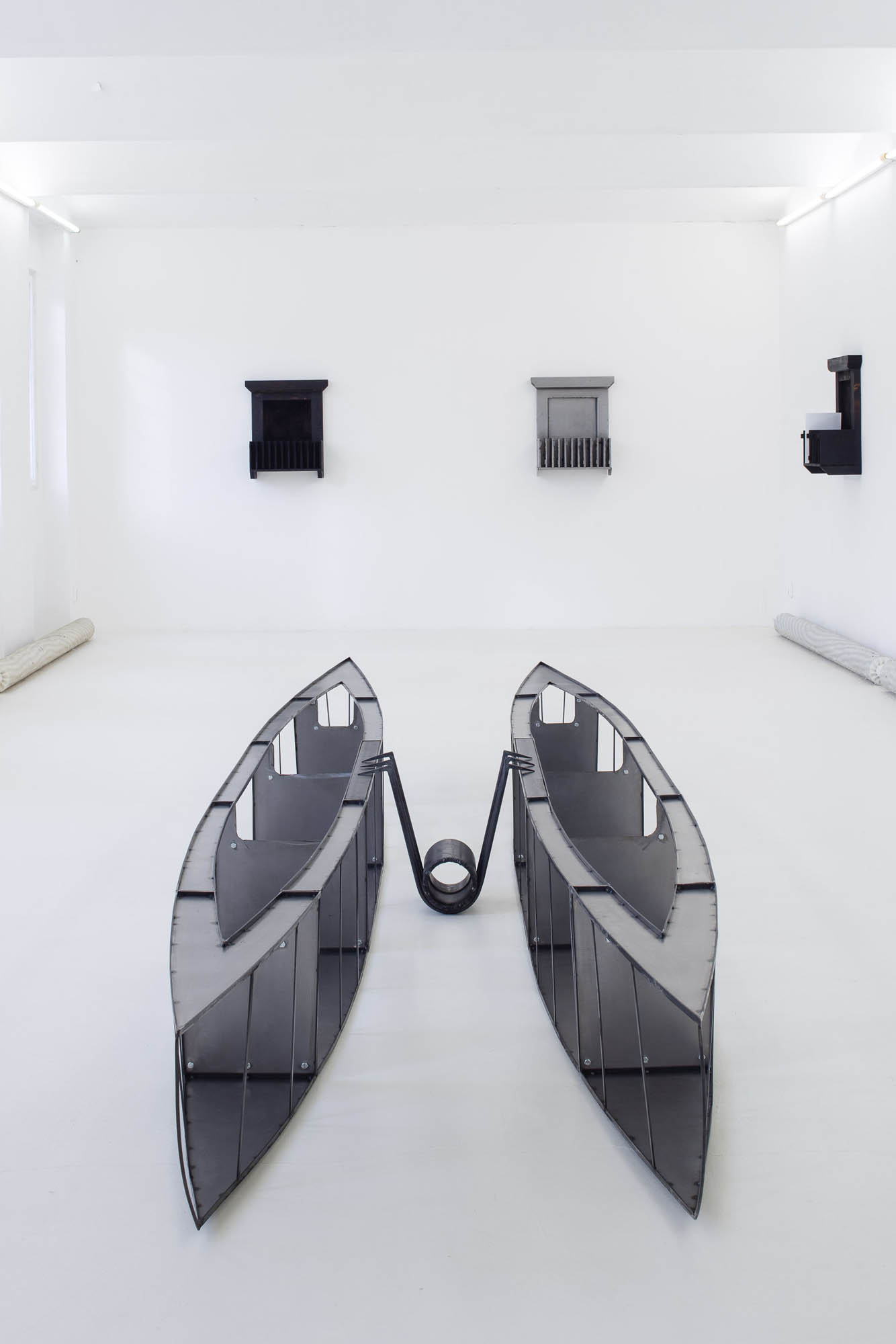Filing / sectioning / compartmentalization. One lever releases the steam, another shuts it off.
Irina Lotarevich’s installation Galvanic Couple, centering around a sculpture of two joined boats, takes its name from the process of galvanic corrosion, which occurs when two dissimilar metals are electrically coupled under water. When a galvanic couple forms, the less noble of the metals in the couple becomes the anode and corrodes faster than it would by itself, while the other becomes the cathode and corrodes slower than it would alone.
Once a friend confided in me that she didn’t understand how boats could float in water. I won’t lie, I didn’t know the answer either. At the time, both of us had only understood the concept of displacement as a lingering feeling. A boat will float if it displaces more liquid volume than it weighs. A stone won’t float if you drop it into the sea, it’s too heavy and displaces too little water. A person can feel displaced anywhere at any time, for short or long intervals. A person will sink if they fill their pockets with stones.
Lotarevich’s boats, or lovers, are made from metal and were never meant to sail. There are too many holes. The escaping air will bubble up to the surface, gargling with salt.
